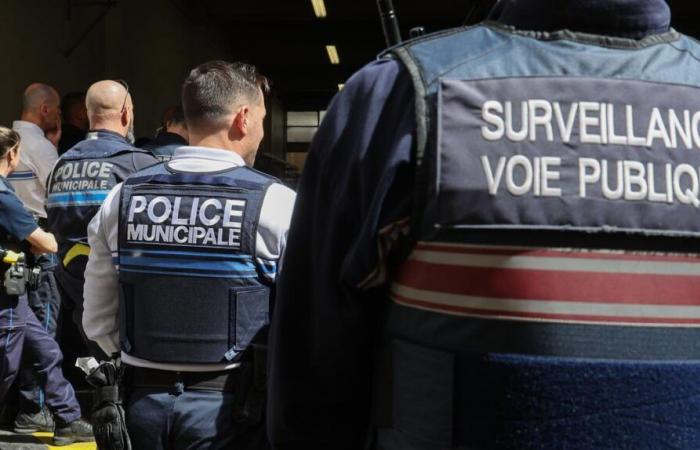Cn Tuesday, November 12, in the afternoon, Pierre Hurmic, the mayor of Bordeaux, presents his “plan to strengthen the municipal police”. Behind this title, he will say above all if he is biting an ideological line by equipping his municipal agents with lethal weapons: until now, he has always refused to do so. Before the subject is constantly brought back to the table by its opposition, according to the various events which punctuate the news in Bordeaux, and it finds itself at the heart of a municipal police strike. And even if the question of insecurity in Bordeaux cannot be attributed solely to the current majority (it is a basic trend which, for years, has affected all metropolises), this refusal to equip the agents fuel the passivity trial against the environmentalist municipality.
Moreover, it is false to believe that arming the municipal police acts like a magic wand and will stem delinquency: arming is above all an expectation of the municipal police themselves, often placed in the position of “primary participants” on criminal acts. “It’s a risky profession, recruiting agents is not easy: the salaries are not amazing, there are difficulties in finding accommodation, but the armament is a determining point which makes us attractive”, notes a mayor of the town whose police are armed. “We have seen agents from Bordeaux come and apply to us for this reason alone. » In the details of the social alarm – a conflict prevention procedure filed last May by the CGT of the City of Bordeaux –, one point concerned the lethal arming of municipal police officers. A strike followed in June on this subject. Municipal police officers displayed a banner at the town hall: “Does it take a death to feel remorse? »
Change of foot
Even if it meant making his camp cough, Pierre Hurmic took the security issue head on with a prism of his own. This has now earned him the opportunity to chair the French Urban Security Forum, which brings together around a hundred large communities. During the campaign, he constantly demanded “more blue in the streets”. But from the slogan to its implementation, there is reality. Recent years have been marked by the endless negotiation of the Integrated Security Contract (CSI) with the State, punctuated by controversies, against a backdrop of distribution of tasks and commitments in terms of staff. An agreement was finally sealed last summer: the State will thus assign 40 additional national police officers to Bordeaux, in addition to the 140 who arrived in the police zone in two years; the City has committed to hiring 30 municipal police officers and thus going from 138 officers in 2020 to 200 in 2026.
On this occasion, the mayor made a first change of stance regarding video surveillance cameras: “Philosophically opposed” to the system at the start of his mandate, the number of cameras will have almost doubled within two years, going from 136 to 255.
Municipal in two years
In this standoff, Pierre Hurmic has always been picky about the distribution of roles: public security for the national police, public “tranquility” for the municipal police. If, likely hypothesis, it takes the step of armament, this reading grid will be obsolete. Municipal police officers will in fact play another role in the security continuum. It is also a way of abandoning the “moral” posture of denunciation by recognizing, if not the shortcomings, at least the disengagement of the State on the subject. Between the pressure from its agents, the expectations of the Bordelais – 68% place security as a priority in the latest survey commissioned by the town hall –, the regular shelling of its opposition and, more trivially, in the perspective of municipal elections in less than two years, does the mayor have a choice?
“We consulted a lot and looked in depth at a file that does not allow shortcuts or demagogic postures”
“The subject is too serious to turn it into political exploitation,” says a member of Hurmic’s entourage. “We consulted a lot, delved into a file that does not allow shortcuts or demagogic postures. » The fact remains that the question is causing a stir even in the ranks of the majority. Three prominent deputies brandished the threat of resignation if the city were to arm its police… To justify these “moves”, which could be perceived as renunciations, Pierre Hurmic systematically worked to give pledges. In 2021, the deployment of video protection was accompanied by an “ethics committee”, the analyzes of which few people care about today. This Tuesday, he promises to draw the outlines of a “doctrine of commitment”: “A first, which had never been done until now”, explained Marc Etcheverry, the deputy to the security. We will know this Tuesday if firearms contribute to the “peaceful city”, this concept dear to elected environmentalists.






